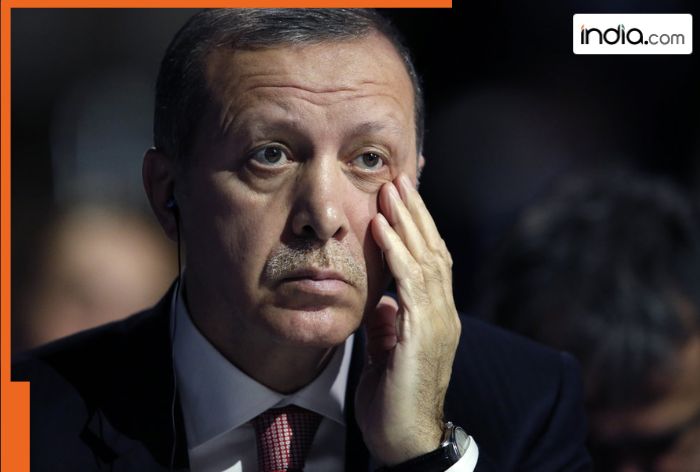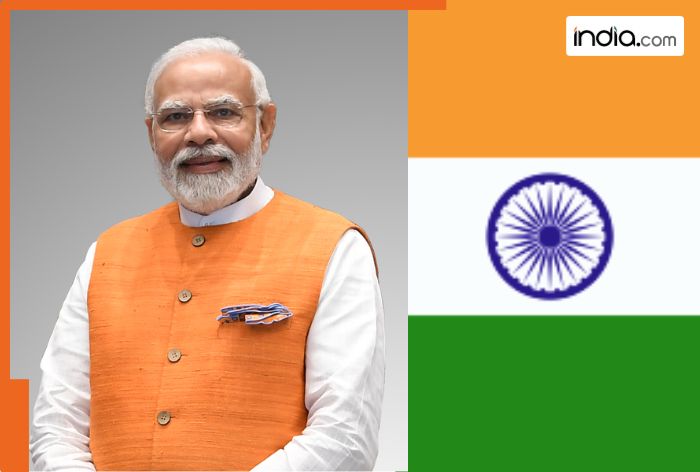‘Make strong case for relief, cannot Intervene unless…’: SC on Waqf case hearing
Centre's Solicitor General Tushar Mehta had urged the bench to confine the hearing on pleas to three issues.

Underscoring the “presumption of constitutionality in favour of regulations”, the Supreme Court on Tuesday mentioned petitioners grand the waqf regulations wanted a “sturdy and evident” case for interval in-between reduction. A bench comprising Chief Justice B R Gavai and Justice Augustine George Masih commenced the listening to on a batch of pleas grand the validity of Waqf (Modification) Act, 2025 for passing interval in-between orders on three concerns, together with the energy to denotify properties declared as “waqf by courts, waqf-by-person or waqf by deed”.
“There is a presumption of constitutionality in favour of every statute. For interval in-between reduction, that that you may possibly like to originate out a in point of fact sturdy and evident case. Otherwise, presumption of constitutionality will be there,” the CJI mentioned when senior point out Kapil Sibal, main the rate against the regulations, started his submissions.
Sibal described the regulations as a “full departure from historical valid and constitutional tips” and a technique to “capture waqf via a non-judicial path of”.
Centre’s Solicitor Odd Tushar Mehta had entreated the bench to confine the listening to on pleas to three concerns. Belief to be one of many complications is the energy to denotify properties declared as waqf by courts, waqf-by-person or waqf by deed.
The second self-discipline relates to the composition of teach waqf boards and the Central Waqf Council, the put they contend best Muslims should feature with the exception of ex-officio contributors whereas the closing one is over the provision stipulating a waqf property obtained’t be handled as a waqf when the collector conducts an inquiry to envision if the property is executive land.
Mehta’s submission was once vehemently adverse by senior advocates Sibal and Abhishek M Singhvi, performing for those grand the provisions of the 2025 regulations, that there can't be any piecemeal listening to.
“That is a case relating to the systematic capture of waqf properties. The executive cannot dictate what concerns will also be raised,” Sibal mentioned.
Sibal mentioned the amended regulations permits a scientific expropriation of waqf properties via executive system, bypassing due judicial path of and moreover, waqf properties can change into non-waqf ones that too by an executive present denying the correct to assemble entry to courts by the aggrieved parties.
“Waqf is the dedication of properties to ‘Allah’ by the waqif and the thought that once a waqf always a waqf is jeopardised by the 2025 regulations,” he mentioned.
Earlier criminal tips on the topic, he added, safeguarded the properties and the newest one intended to rob them away. He mentioned the regulations as a “full departure from historical valid and constitutional tips”.
Sibal mentioned the regulations offers for “creeping acquisition” of waqf properties and undermines thought of waqf, a permanent endowment for non secular or charitable applications below Islamic regulations. Referring to Section 3C of the Act, he mentioned it enables a designated officer to begin an inquiry into whether a property is executive land.
And strangely, in the future of the pendency of such inquiry, the property is now to no longer be handled as waqf and it effectively enables the authorities to rob control with out judicial overview, Sibal added. He also referred to Sections 9 and 14 and mentioned they alter the composition of central and teach waqf boards and enable a majority of non-Muslims to be part of it.
“That is an strive and dilute community control,” he mentioned, “that Section 23 permits the appointment of a non-Muslim as CEO of waqf boards.” He also handled the validity of Section 3D of the regulations and mentioned it offers that any waqf property declared as an faded monument below preservation criminal pointers will stop to be waqf.
He asked how the authorities may set up a matter to documentary evidence or deeds for waqfs created centuries previously as prior to 1954, and in particular after 1923, registration may want been mandated but the dearth of it did now no longer inform the nature of the waqf.
“Are voters stopped from practising their faith due to declaration below faded monuments criminal pointers?” the bench asked, relating to his most recent seek the recommendation of with to a non secular situation and mentioned there Hindus were now no longer barred from offering prayers.
The 2025 Act differs from older regulations admire the Odd Monuments Preservation Acts of 1904 and 1958 which preserved the correct of non secular say, Sibal mentioned. He illustrated it with Delhi Jama Masjid, that will most likely be worn as a waqf though notified as a safe residence.
Nonetheless, the 2025 Modification (Section 3D) invalidates waqf declarations of safe monuments, he mentioned, because the regulations infringes Article 14 (valid to equality) 25 and 26 (rights to say and propagate faith) of the Constitution.
Irreparable hurt would be performed if the amended provisions were allowed to be implemented, in particular provisions that enable waqf properties to be taken over pending inquiries with out judicial adjudication, he added.
He mentioned registration below outdated waqf acts was once needed but non-registration did now no longer alter the non secular nature of the property which was once now no longer the case below the amended regulations.
Waqf by person did now no longer traditionally require registration, he mentioned, but below the brand new regulations the mutawalli (custodian) will also be jailed for six months if he's unable to acknowledge satisfactorily relating to the properties.
“The second they're declared safe monuments, they lose their waqf field,” he mentioned.
He also flagged the dilution of Muslim illustration on the Central Waqf Council, declaring the amended regulations now permits a majority of non-Muslim contributors — a stark departure from outdated norms.
“Earlier, the board contributors were elected and in dispute that they were entirely Muslims. Now they're all nominated. There will be 11 contributors, and 7 will also be non-Muslims. That is violative of Articles 25 and 26. Administration must be performed by the community,” Sibal mentioned.
The bench perused the provision and mentioned the regulations restricts non-Muslim appointments to two.
“Even two is too many,” Sibal mentioned.
Comparing it with non secular endowment boards for Hindus and Sikhs, Sibal mentioned even the ex-officio and board contributors were invariably from the identical faith in those contexts, and the waqf boards should be no diversified.
“That is now no longer secularism. Waqf advent is a non secular act,” he mentioned.
Senior point out Rajeev Dhavan, representing one other petitioner, mentioned the statute was once an “assault on secularism and cultural autonomy”. He mentioned the doctrine of proportionality was once now no longer followed by the Centre in making amendments in the regulations as there was once no nexus between the declare sought to be solved and “these indecent solutions”.
Singhvi, alternatively, puzzled the provision which says a person practising Islam for closing 5 years can best make a waqf. Calling it “arbitrary and never-ending”, Singhvi mentioned no other faith was once self-discipline to such a burden. He raised concerns about Section 3(C), announcing once a property was once declared non waqf, assemble entry to to valid clear up was once practically shut off, locking beneficiaries in a “vicious cycle”.
Answering the Centre’s submission that a regulations, handed by Parliament can't be stayed ordinarily, Singhvi mentioned farm criminal pointers were stayed by the apex court.
On the Centre’s argument of a “1600% elevate” in waqf properties after the 2013 amendment, Singhvi mentioned the upward thrust was once due to digitisation and list processes, now no longer new acquisitions.
What's Your Reaction?




















































